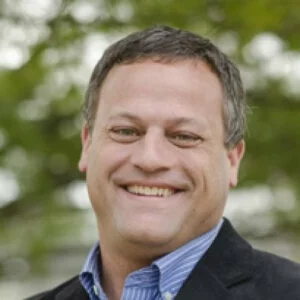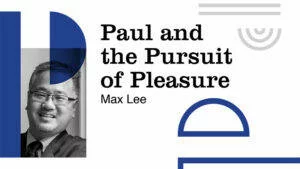I am very grateful to our panelists for their insightful and stimulating contributions. Communicating complex and sophisticated notions from fields as varied as psychology, neuroscience, genetics, and physics in ways that a theologian can understand is no easy task! Our panelists have done excellent work, and I am indebted to them. Their work shows us why and how insights from contemporary science are important for the task of theology today. Their work also serves to warn us about of how widespread claims about recent science also have the potential to mislead theology.
Cresswell and Psychology
As we have seen, popularized notions of psychology often leave the impression that determinism is true—and thus that free will is either an illusion or something that must be compatible with determinism (what Immanuel Kant called a “wretched subterfuge”). But, as James Cresswell ably shows, these notions are under-supported and the claims are misleading. It would be a mistake for theology to accept (or absorb by a kind of cultural osmosis) these claims, and Cresswell helpfully demonstrates that a close look at recent work tells a “cautionary story of how scientific hubris can cause researchers to bypass human phenomena when too much faith is placed in determinism.” Indeed. At the same time, however, Cresswell’s essay shows us how Christian theology can benefit from insights gained in fields such as social psychology and cognitive science of religion.
Runyan and Neuroscience
Jason Runyan’s contribution is both well-informed and insightful. It is also very timely. Especially helpful is the historical and (especially) conceptual contextualization of Libet-type experiments. By his account, the dismissals of free will that are often popularized are at best very premature and arguably flawed—even deeply flawed.There is nothing in contemporary neuroscience that undermines or destroys human freedom. He shows that they present a real challenge only if a particular account of free will is presupposed, and he makes a case that such an account of free will is not preferable and certainly not necessary. To this I say “Amen,” and would only add that such freedom-negating conclusions seem also to rule out various accounts of the metaphysics of personhood more broadly. Looking at broader issues in neuroscience as these relate to discussions of free will, he suggests that we take the scientific work with utter seriousness but not as the only authority. He concludes that—contrary to popularized claims—there is nothing in contemporary neuroscience that undermines or destroys human freedom. But he also helpfully notes how current work in neuroscience might circumscribe and shape our understanding of how we should conceive of that freedom. More precisely, he concludes that there is nothing in our brains or nervous systems that determines all our actions; to the contrary, what we know from neuroscience coheres nicely with a dispositional account of free will and indeed consistent with a version of libertarianism. He helpfully illustrates the importance of an integrative approach to the theological task: we need not only biblical exegesis and the history of doctrine but also the insights that can be gleaned from the natural sciences and philosophy.
Alexander and Genetics
We have also seen that there is a widespread perception of genetic determinism. Denis Alexander provides a lucid introduction to recent advances made in the study of genetics. He offers some very helpful historical background to this discussion, and he especially highlights the troubling legacy of eugenics. I think that it is important for Christian theologians to proceed with awareness of this history. In her penetrating study of the reception and promotion of eugenics in American churches in the early twentieth century, Christine Rosen documents how ecclesial leaders and theologians were active and even eager in spreading the “good news” of eugenics. She shows, with depressing thoroughness and in chilling detail, how mainline Protestantism (and Judaism) aggressively promoted the eugenics movement by appealing to the assured results of modern science.Christine Rosen, Preaching Eugenics: Religious Leaders and the American Eugenics Movement (New York, NY: Oxford University Press, 2004). The lesson should be clear: there is a “cautionary tale” here as well. Returning to the present, Alexander debunks some of the popular misunderstandings that are often associated with medical and even behavioral genetics. He concludes that in medical genetics we are dealing with probability rather than determinism, and overall he cautions against following the cultural zeitgeist.
Koperski and Physics
Perhaps the most worrisome challenges to traditional accounts of free will come from physics. Jeffrey Koperski’s clear and engaging essay traces important developments in physics that matter for Christian theology. He nicely summarizes the challenges that come from Newtonian mechanics,Perhaps the most worrisome challenges to traditional accounts of free will come from physics. and he introduces the relevant issues that arise with quantum theory. He argues that even though freedom isn’t impossible on Newtonian assumptions, nonetheless the challenges are stiff. On the other hand, he illustrates the nature and strength of the challenges that come with the reception of quantum theory. So it turns out that, contrary to popular perception, the older Newtonian models actually aren’t inconsistent with freedom, but quantum theory, on the other hand, doesn’t provide any quick fixes and shouldn’t be thought of as a challenge-free zone. He ably shows that several commonly-accepted interpretations of quantum theory indeed are deterministic, and he weighs the possibility that many-worlds and other determinist-leaning interpretations may yet gain the ascendancy among physicists and philosophers of physics. Nonetheless, he argues that this would not amount to the negation of free will—for we are, after all, talking about persons, and persons are not reducible to collections of physical particles.
To Care and Not to Care
In conclusion, this Areopagite reminds us that Christians should care about the sciences—but not care too much! We can readily see that a robust, well-informed Christian understanding of theological anthropology has much to learn from scientific input and stands to benefit much from it. More specifically, in this case we can see that a proper understanding of the relevant scientific insights does nothing to undermine belief in human freedom and moral responsibility, and we can also see that these insights may help circumscribe and inform our understandings of what that free will might look like. But there is also something of a cautionary tale here,In conclusion, this Areopagite reminds us that Christians should care about the sciences—but not care too much! for we are reminded that some of what passes for the certainty of established scientific fact in reality is over-blown hype that far outstrips anything that has gained consensus within the relevant scientific community. If theology accepts such claims and then makes doctrinal adjustments in an effort to stay scientifically-credible, it risks surrendering established theological verities and, as the conclusions of the sciences change and self-correct, can look unserious, unsettled, and sometimes even desperate and craven. In each case, it becomes obvious that the confident and pervasive pronouncements that “science shows that there is no free will” actually come to these conclusions only by adding in a distinctly metaphysical component. In other words, what presents itself as “physics” (or biology or neuroscience or psychology) is really “physics (or biology or neuroscience or psychology) plus metaphysics” (or, in some cases, physics masquerading as metaphysics). But, of course, theology has its own metaphysical convictions! It has every right to these convictions, and it should not be intimidated by claims that science has all the answers or that it has replaced the need for metaphysics. So it is important for theologians to listen to the scientists and to learn from the research and insights of scientists—and it is also vital for them to weigh the pronouncements of the scientists from the standpoint of received doctrine and with the tools of logic (and with the further vital assistance from philosophers of science).
This Areopagite reminds us that it is a mistake for the theology of the church to accept scientism. I think that we should be alert to—and concerned to combat—the power of scientism and the magnitude of its impact. We really do live in a culture where research scientists are seen as the high priests: they know the secrets, they can promise good fortune, and they are qualified to deliver pronouncements about matters far beyond their expertise and far above their paygrade. I am concerned about this hegemony and am convinced that the church should stand against it. But as this Areopagite cautions us not to be wooed by the siren call of scientism, so also it serves to remind us that theology should gratefully accept the insights of the natural sciences. Theologians of the church have a lot to learn from their colleagues in the natural sciences, and our theology may be deeper and richer and better for such learning. We need all the help we can get, and we should be thankful for it. I, for one, am very grateful indeed for the work of our contributors.







Comments
Be the first one to make a comment!